|
Though it’s not technically the end of Lent until tomorrow, we have come to the end of The Lord. And with that comes a reflection from Guardini on the promise that is made by God: the promise of redemption, of renewal, of the fulfillment of all things where divine truth finally breaks through and consumes all. We get a glimpse of what this looks like in the book of Revelation, with the vibrant precious jewels of all kinds, the gold trumpets, white garments, crowns, thrones, and Elders falling on their faces before the One. And it’s not a chaotic assortment of wondrous things either, as we see the New Jerusalem described in a very orderly fashion, with streets and buildings and the Tree of Life that follows some pattern of the seasons. It’s the New Creation, in which everything is exactly as God intended it to be—perfect fulfillment of all things, according to their kind. This is the promise made to every one of us, individually, the offer of salvation. But in Revelation, we don’t see this fulfillment on a purely individual level. No, we see “masses.” We see the People of God fulfilled as one Body, united to Christ in the Spirit, who with one voice proclaim the glory of the divine. Within us now is the first fruits of this fulfillment, the seed of faith which the Spirit will eventually bring to blossom in eternity. In the here and now, our duty is to care for that seed, to “feed” it through prayer and adoration, through loving our fellow men, by imitating Christ and allowing him to transform the inner man so that it can break through to the outer man and thus to the world around us. “In every believer flows the spring of the new glory. If we take this word seriously, faith is not easy. Everything in us and around us contradicts it, often with arguments difficult to refute. We might be asked the embarrassing question, ‘whether the redeemed shouldn’t look more redeemed?’ But after all, the stupendous claim is not of our making, nor proved by our existence; we have it from Revelation, from God’s own words. The Christian himself must struggle to sustain the promise against his own not-too-convincing personal experience. This is what John means when he says that our true selves are yet hidden—not only to others, but to ourselves. Nevertheless, the intrinsic splendor is there and grows in spite of all weakness.” -Romano Guardini ("The Lord") The difficulty of faith cannot be overstated, though it is quite often understated. We say things like “all you need to do is believe in Jesus” or “have you accepted Jesus yet” as if those are casual things we can simply do, when everything within us and without seems to repel the thought. Especially in the modern age, when we are so far removed from when Jesus walked the Earth, when we’re constantly inundated with questions of science, like archaeology or psychology, which try to make sense of Jesus as if he was merely a man. It can make it incredibly difficult for one to maintain his belief.
I don’t mean to say these aren’t useful things, even in trying to better understand Christ. Of course they can be. But the simple fact is that Christ cannot be separated into “Jesus the Christ” and “Jesus the Historical Man.” If we remove the divinity from Jesus, we are left with little more than a vague sense of moral direction which is barely worth acknowledging in the grand scheme of things. If we remove the historical man from the Christ, we are left without any salvation at all and without the one who, face-to-face with us, reveals the Father. Jesus is both God, from before all time, eternal, and also man, having lived in a particular time and place with particular people. Any attempt to understand Christ apart from that essential fact is doomed to failure, and can lead nowhere but to unbelief. And so, amidst all the tumult of the world, and all the concupiscence within us that rebels against God, we must hold fast to that seed of faith within us. We must hold fast to Christ, for it is only through Jesus that the promise can be fulfilled, only through Jesus that we can be led to the Father, only through Jesus that we will finally discover our true selves, our Christian Personality, our fulfillment and who God intended us to be from eternity.
0 Comments
In Part 7, Chapter X of The Lord we come to the final judgment, the Great White Throne before which all the dead rise to be judged “according to their works” and either welcomed into eternal life or cast into the lake of fire. Guardini does have a very interesting discussion in this chapter about truth and power, about how power dominates in the here and now but in the final days the Truth spoken by the Word will overcome and hold dominion over all things (that’s why the sword comes out of the Word’s mouth). But it’s specifically the lake of fire and the second death that drew my attention here, and I found myself going through the same process I always seem to when I think about Hell.
Across the various Christian traditions and denominations, there are many different interpretations of what “damnation” looks like and what awaits those who are not welcomed to eternal life. I won’t expound on them here, but there’s one idea which continues to perplex me: Annihilationism. Put simply, Annihilationism is the idea that the damned will not spend eternity in Hell. Rather, the lake of fire they are cast into “consumes” them, such that they are completely annihilated—they no longer exist at all. I won’t get into any of the common arguments for this end, but if you’re curious, I’ll point you to this old post from Pastor Greg Boyd. To be sure, Hell is a difficult topic no matter what you think this “second death” looks like. And I absolutely understand the appeal of Annihilationism. The idea of God allowing people to suffer for eternity for a life lived in time is not easy to accept. Some of the Biblical arguments for Annihilationism also make a bit of sense to me, so I sympathize. But my main struggle here is not on the arguments for it or even the raw appeal of it, but something else: God’s nature. God is love. Right? Right. Love flows from God abundantly, from His very being. The creative aspect of the divine is fundamentally based in love. God creates because He loves. Things only come into existence because God wills it to be so. To will that they exist is love. God shares with everything that is His very being, so that everything can “be” as participators in His life. This means that the creative act of love is not merely a thing that happened at some point in the past, but rather a continuous ongoing act of love. In His love, God continuously wills that everything which “is” exists. And as created things, not only is there no way to exist apart from God, but also there is no way to cease existing apart from God. Existence and non-existence are wholly up to the will of God. And that’s the thing: In order for Annihilationism to make sense, we must say that God either wills that these people no longer exist or that God ceases willing that they exist. The result is the same, but the difference between those two is important. The first is completely untenable. For God to will that any person no longer exist is fundamentally unloving, and thus contrary to the divine nature. The latter, however, is more interesting. When presented with any “thing,” the will (meaning the faculty which makes a decision regarding a thing) can either “will” it or “nill” it. That is, if you come across an apple, you can either “will” that the apple be picked up, or you can will against (“nill”) picking the apple up. There is also this idea, however, that the will can be suspended. If you come across an apple, you could will that it be picked up, or you could nill that it be picked up, or you could suspend your will and make no decision regarding the apple at all. You neither “will” nor “nill” it. So, having ruled out God actually willing that a person ceases to exist (“nilling” their existence), we’re left with the possibility that He either stops willing that they exist or that He suspends His will with regard to the person (this suspension inevitably resulting in their annihilation, as they can only exist so long as He wills it to be so). However, a suspension of the will could probably be called “indecisiveness” or “uncertainty,” which feels to me like a deficiency either in the will or in the intellect and passions which inform it. There can be no such deficiency in God, and so that seems not an option. The only option, then, is that God simply stops willing that the person exists. This is my ultimate problem with Annihilationism. God is love, and therefore everything He is and does flows from that love. God’s love creates, brings other things into existence. For things to cease existing, not just “die” but to literally be “annihilated,” God must cease His creative love. No matter how I shake it, this feels contrary to divine nature, and I just can’t reconcile it. I am, of course, happy to be corrected by anyone who believes otherwise, or can point me to some stronger arguments in favor of Annihilationism. I am certainly no expert. With all that talk about willing and nilling and suspension of the will, I'm punching well above my weight class, so I definitely welcome input from those who know better know the likes of Descartes, John Duns Scotus, Boethius, or countless others who have written extensively on the will. I suppose the reason I am drawn to think about Annihilationism every time I come across the topic of Hell is because, as I said before, it has a strong emotional appeal. I don’t like the idea of a Hell in which souls of the damned suffer for eternity. But I can’t make sense of it any other way, either Scripturally or philosophically. One curious thing about Revelation is how much “stuff” there is everything. Images are thrown at us like crazy of “things” like seven golden-lampstands, thrones, crowns, animals, harps, trumpets, seas, scrolls, birds, precious gems, and many other “things.” The question is “Why is there so much stuff?” Replying that the stuff only exists because it is a vision, and thus needs the visual aspect for the benefit of the seer is certainly not the answer. God could have provided all the content to the seer without the need for all these images; He could have merely laid the truths on the seer’s heart, revealed it through the inner man. But He chose to use “things.” Why? What we would probably expect is what I’ve just mentioned. We would expect all the “things” of the world to have passed away in this heavenly life, and for God to move from within us to reveal His will and glory. God is, of course, without form (save the Son who took on the form of a slave). When everything is fulfilled, why would the formless God continue to utilize objects and formed things to reveal Himself? God certainly does reveal Himself from within. He stirs the hearts of man. The Spirit moves within us and gives us the grace of faith, the grace for our first desire for God. He is constantly working in us to guide us to Truth and Life, and this all happens within the soul of man, so that from the inner man it might radiate to the outer man and thus encapsulate his whole being. God speaks directly to man’s heart. God does this in the here and now, and there is no doubt He will continue to do so in this heavenly place. God also reveals Himself through Jesus, the God-man, who gives form to the hidden God. For the first time in Jesus we can, quite literally, converse with God. He reveals himself in history, at a particular time and place, in a particular person. We have already spoken about Christ as “Lord of History” and how by Christ we can see how God works in and reveals Himself through history. But those are not the only ways God reveals Himself. God created all things. Each and every thing that is participates in the Being of God. Thus every person, every tree, every rock, every Toyota Prius, every cat (no dogs) reflects that Being in its own way. God speaks to us through all the “things” of Creation (again, except dogs). From our perspective, this is difficult to see. We see the decay of the world, and think nothing of God. Worse, we see the things in the world not as Created and participators in the life of God, but as things to be dominated and controlled. The reflection of God in the “things” of the world is hidden from us, only clearly accessible to few highly graced minds. But still, God speaks to us through these things. And here in Revelation, we see that this speech which only seemed the faintest whisper to us in this world is now magnified into something so glaringly obvious it is impossible to deny. Everything in heaven reflects God in brilliant radiance. So why are there so many “things” in Heaven? Because those things are one of the ways God has always chosen to reveal Himself to us. Here they too are fulfilled, and everything reflects God’s glory in its utmost, and it will no longer be possible to deny that every “thing” only exists by Him. “Now we begin to see what the things in the Apocalypse mean. In the realm of the incarnate Word, in the clarity of redemption, the implicit word of the deus absconditus, the hidden God, awakens, as does the divine word concealed in created things. These become pure and free. Thus all things become luminous, their message audible. That which is only sensed in the ordinary Christian existence—the oneness of the wordless, inner speech of God, his sign-language in all created things, and the Word, Christ, with his clear, spoken Message—here becomes blazingly evident.”
-Romano Guardini ("The Lord") The One who thrones holds in His hand a scroll with seven seals, a scroll which no one is worthy to open. No one, save the seven-eyed Lamb which has been slaughtered. The Lamb takes the scrolls from the One and begins to break its seals. As the Lamb takes it, the elders begin worshiping the Lamb, as they have seen that the Lamb is worthy as the One who thrones is worthy. The Lamb, of course, is the Son, the spoken Word of the Father, who acts in the world. The Father does not open the scroll, for the Father is hidden. It’s the Son who reveals the Father to us who opens the scroll. And with every seal that is broken, a new event occurs. With each of the first four seals come the four horsemen: Conquest, War, Famine, and Death. As Guardini notes, it’s impossible to interpret these four horsemen independently as the symbols overlap. The final horseman, for example, is Death. Though War and Famine both carry death with them as well, just as war carries famine with it. The curious thing about the horsemen is that all four are not merely things to come at the end of time, but are things already here. “On the contrary, the apocalyptical riders symbolize recurrent aspects of earth’s existence, characteristics of world-evolution with the incidents that mark it. They do not gallop that one ultimate hour through history, but again and again. Whenever certain events take place, it is they, the horsemen, who ride over the world . . . They are the first ripples of the ultimate flood, announcements of the coming God-sent catastrophe in which everything sinful, false and degenerate in man will be laid bare.” -Romano Guardini ("The Lord") This is clear enough from the opening of the fifth seal, in which we see the souls of the righteous crying out from under the altar for God’s justice to fall and reign supreme. The souls are told to wait awhile longer, until the measure of God’s patience is full. The horsemen are not merely released once that measure is full, but are already among us, their power felt again and again throughout the ebb and flow of history, while the righteous await the ultimate flood of Divine justice. It’s the opening of the sixth seal which backs this up further, as it is when this sixth seal is opened that the earth begins to quake, the moon turns to blood, the stars begin falling out of the sky, the sky itself vanishes, and everyone remaining on earth hides from the Judge who comes—from God’s wrath. The horsemen are indeed apocalyptical, inasmuch as they are the “first ripples of the ultimate flood.” It is the sixth seal which seems to mark the measure being full, and God’s justice reigning down upon the world. The question obviously comes up, though: Why does the end need to be so terrible? Why all the dread? The simple answer is “sin,” but that needs some expounding. Nothing that exists does so apart from God. Everything was begun by His hand. As such, there is no such thing as a “natural end” to the world. The world will end when God so chooses it to end, and by the manner He so chooses. But the world is filled with sin, and all of us in it. “And because sin has heaped up such a terrible balance, which it continues to pile higher and higher, that end will be necessarily dreadful: utter destruction and judgment.” That is, God’s patience with the sin we continue to commit, though the four horsemen stride among us giving us a foretaste of the full consequences to come, will eventually be full. At that time, it will no longer be the horsemen, but the Lamb who returns to the world as Divine Judge. Until such time, the righteous are told to wait. “Be patient, even though nothing seems to happen! Do not be deceived by God’s silence! God is silent, and men think their power assured. In reality its limits have long been set. Injustice steadily increases; when in God’s eyes the measure is full, vengeance will come. The menace of this supreme chastisement flashes ‘apocalyptically’ in every scene of general violence, regardless of place or hour.” -Romano Guardini ("The Lord") And so we wait, and continue to suffer for the name of God. We continue to adore Him, to pray and worship, as the world rejects Him and moves further and further from the Light. But one day, by His grace, we will wash our robes in the blood of the Lamb and worship before the throne, where there is no more famine nor war nor death. “For the Lamb at the center of the throne will be their shepherd, and he will guide them to springs of the water of life, and God will wipe away every tear from their eyes” (Revelation 7:17).
In Revelation 4, John sees “one” seated upon a throne surrounded by a rainbow and once again the seven lampstands. Around them all is another 24 thrones, upon which are seated elders with golden crowns, and four very strange looking animals each with six wings and eyes all over the place. “Without ceasing” these animals begin to praise the One on the central throne, and every time they do so the 24 elders prostrate themselves and cast off their crowns, proclaiming “You are worthy, our Lord and God, to receive glory and honor and power” (Revelation 4:11). Endlessly, these elders engage in this act of adoration of the One who thrones. There’s two major things we can gather from this: the importance of adoration and what “life eternal” might actually look like. To get at the latter, we need to dig into the first.
Guardini is careful to make the distinction between adoration and submission. Adoration does involve submission, to be sure, but it is much more than that. If you submit to someone, say to a bully who is stronger than you are, that is merely an acknowledgment of their superior strength. It says nothing of whether or not they are worthy of your praise. “It is one thing to bow, outwardly, to superior force; quite another to do homage to it inwardly, to prostrate my intrinsic personality before it.” In submission, the outer man bows to another. In adoration, the outer man bows because the inner man realizes the worth of the one who is honored. Physically and spiritually, we recognize the worth of God, and that realization causes us to fall on our faces, to cast off our crowns, and to adore Him as the elders do. There’s a practical element here as well. Adoration is not something we can merely do exactly as we ought whenever we choose. It’s something which must be practiced, regularly, as it is something which springs from the soul. Proper adoration requires a right ordering of the soul so that the worthiness of the One is actually recognized, felt deeply in the heart. As fallen men, mired in concupiscence and disorder, regular prayer and simple acts of adoration work to correct the ordering of our souls (by grace) so that we can adore more perfectly. Here we see the elders endlessly engaged in adoration. “Day and night without ceasing” they fall on their faces, cast off their crowns, and adore God. Our initial reaction to this is “That sounds pretty boring.” Indeed it must feel that way to us! Ask any person what life is and they will inevitably give you some answer like “the process of working toward some goal” or maybe something along the lines of growth, death, and decay. As beings created in time, the answer will always center around change, as that’s simply how we experience the world. So the thought of life not in time but in the eternal is perplexing, almost incomprehensible. The thought of doing anything “without ceasing” is preposterous. There’s a lot of ways we can approach this incomprehensibility. For me, thinking about adoration itself is the easiest in order to make the eternal “acceptable,” for lack of a better term. Remember, in order to adore rightly, the inner man must recognize the worth of the subject being adored. Obviously, there is none more worthy than God. God is infinitely worthy. And “infinite” is the key here. Man will never be able to comprehend God, to know God through and through and be able to say, truly, “I know all there is to know about God.” It’s simply beyond the capacity of any created being. And every time we engage in an act of adoration, our souls are “purified,” corrected, becoming more rightly ordered. We begin to recognize worth which wasn’t accessible to us before. In eternity, this adoration “without ceasing” is not merely doing the same thing over and over. It’s constantly learning more and more about God and how worthy He is of our worship. Joseph Ratzinger uses the image of sinking into an infinitely deep ocean. You will never reach the bottom, but you will forever be going deeper and deeper into this great mystery. That’s what awaits us in the eternal. Not boring repetition, but endlessly diving deeper into the mystery of God Himself, learning, embracing, loving. In the here and now, adoration is a critical part of spiritual life, as it corrects and orders the disordered soul and directs our praise to the One who thrones above and is worthy of it. In the eternal, adoration is the life. We begin the final section of The Lord today. Here in Part 7, we turn our attention to the book of Revelation, and what lies at the end of time for us, and what lies in eternity for all. But before we can do much digging into Revelation, we need to be sure we understand what it is we’re looking at.
Revelation is a very difficult book to read, perhaps the most difficult in the entire Bible. Not because of the difficulty of facing subjects like judgment and eternity, but because it uses a lot of imagery that simply confounds the mind. Talk of seven golden lampstands, feet like bronze, eyes of flame, a sword protruding from the mouth, it’s all clearly very symbolic but difficult for us to wrap our heads around. You can attempt to in any number of ways. Numerology is a popular option: “the significance of seven, twelve, four-and-twenty.” You can focus on the symbolic importance of a lamb, or a jasper, or a dragon. But Guardini suggest first another approach: dreams. Before we talk about dreams, though, it’s important to set some context here. John is experiencing this vision, this Revelation, in a time of great persecution. The Romans have started taking their hatred, which up until this point had been directed at the Jews, and are turning it on the Christians. Christians are being rounded up, tortured, killed, thrown into the great Roman arenas to be devoured by animals for entertainment. The vision John receives here is one of consolation, but not in the manner of God descending to protect the community in the moment. Rather the consolation offered is what lies ahead for the faithful in eternity. “All flesh will appear before him, and he will disclose every human act, evaluate every soul once and forever. That is God’s consolation, the comfort of faith there for all hearers who have ‘overcome’ in faith.” That’s the context of John’s vision, and what he wrote about it to be distributed throughout the Church. Perhaps more important than its context in history, though, is the nature of the work itself: vision. Guardini suggests we approach it with the mind of a dreamer. Try to remember any dream you’ve ever had. You probably don’t remember vivid details about what things looked like, or smelled like, or even sounded like. You perhaps can remember dreams where things were even incredibly strange, in hindsight, but which in the dream were simply accepted as they are. A five-headed dog is a terrifying thing to imaging. But the mind of a dreamer merely accepts it as fact, and takes it on its daily walk. The dreamer mind understands the meaning and significance of things without concern for how they appear, or how they stack up against previous experience. The dreamer simply encounters them, and accepts them. The difference here is that John did not have a dream, but a vision. In a dream, the mind takes itself through the realms of irrationality and wonder. No matter how out of control we may feel, it ultimately is our minds which are controlling the dream. In a vision, man is lifted outside himself by God, and it is God who is in the driver’s seat, revealing what He wills in the manner He wills it. But Guardini suggests that we take a lesson from the dreamer in order to understand the vision. Rather than trying to impose human rationality and how the natural world behaves onto it, in order to make it comprehensible to us, the subject surrenders control to God and accepts the reality that is presented to him, in faith. This is the important perspective we need to adopt if we are to begin to understand Revelation: the perspective of faith. Without it, this vision will be reduced to mere literary symbols and numerological formulations. Those are certainly useful in a lot of respects, but only if they too are coming from the perspective of faith. John doesn’t sit there calling into question why there are lions “full of eyes in front and behind” or why Jesus suddenly has hair white as snow. He accepts them as they are, and his faith enables him to understand the importance behind them, just as the dreamer mind doesn’t bother with all the oddities our minds conjure up in our own dreams. To understand Revelation, we, like John, must surrender to faith. There’s something different about the early Christians, in the first few decades of the Church. There’s an eagerness, a drive, a restless desire for Christ above all things. The Church today doesn’t feel much like that. Christianity is more “Christian culture,” an underlying and contributing element of who we are and how we behave, but not dominant. It’s often not an activating force in our lives like it was for the Early Church. Christianity changed everything for the early believers—it completely upended and transformed their lives. For us, it’s just another thing we do amongst many. Guardini thinks that difference between the early and modern Church comes down to one major factor: anticipation of the Second Coming. Simply look at how Paul writes and we can see how differently the early Church thought about this. Paul was convinced he would see the return of Christ within his lifetime. It’s why it’s so easy to paint him as anti-world and anti-flesh. His writings quite often focus on shifting our perspective from the things that pass away to the things of the eternal. In 1 Corinthians 7:32-35, for example, he says concerning marriage: “I want you to be free from anxieties. The unmarried man is anxious about the affairs of the Lord, how to please the Lord; but the married man is anxious about the affairs of the world, how to please his wife, and his interests are divided. And the unmarried woman and the virgin are anxious about the affairs of the Lord, so that they may be holy in body and spirit; but the married woman is anxious about the affairs of the world, how to please her husband. I say this for your own benefit, not to put any restraint upon you, but to promote good order and unhindered devotion to the Lord.” It’s easy to read that and come away thinking Paul is against marriage (and indeed, he’s often presented that way). But consider that Paul is expecting Christ to return imminently. At any moment, he expects Christ to arrive. Therefore, cast off all other things and focus on Christ, for the eternal is coming soon. We see this same attitude in how the early Christians gave all their possessions to the apostles, to be redistributed to the poor. This wasn’t some communist effort (as Guardini explicitly notes), but an entire community of believers who expect the eternal to arrive at any moment. This world is passing away, soon, and therefore these earthly things do not matter.
Paul in his later years, however, starts to mellow a bit. The reality that Christ might not actually return in his lifetime is starting to set in, and so he begins to say things like “I am hard pressed between the two: my desire is to depart and be with Christ, for that is far better; but to remain in the flesh is more necessary for you” (Philippians 1:23-24). He realizes he may die without seeing Christ’s return, and so he learns how to redirect his zeal and eagerness, and channel it into the lifetime walk of sanctification and evangelization that is asked of each of us. He was expecting a trumpet blast, but learned that he may never see hear it. That zeal never went away, mind you. His anticipation of Christ’s return is always the driving force behind his words and his actions. What he does with that zeal just becomes tempered with time and age and wisdom. For us now, that anticipation seems to be gone entirely. How often do you think about the Second Coming, truly? How often do you consider “If Christ returned tomorrow, what would I do?” Surely if you knew, for certain, that Christ’s return was imminent, it would change everything and you would completely alter your lifestyle and attitude and devotion. But what if you knew, for certain, that Christ won’t return for another hundred years, or a thousand? Would you change your behavior then? The thing is, when Christ comes ultimately shouldn’t matter as to how we react. We can never know when it will be; only the Father knows. But the anticipation of it ought to be what drives us, always, as it did the early Christians. The Second Coming should be the foremost thought in our mind, the return of our Lord, which could happen at any moment or a thousand years after we have already died. Paul didn’t give up his hope. He learned how to use his hope to engage with his brothers and sisters in Christ more fully, how to drive and lead them in their mutual hope. That anticipation of the imminent return of our Savior changed his life every single day. We ought to have that same anticipation. If you’ve followed my blog or my reflection series in past years, or if you’ve sat down and had even a brief discussion on faith and theology with me, you’ve probably heard me talk about “Christian Personality.” It’s the term Guardini uses to indicate the fullness of our being as human beings, or rather the fulfillment of our individual selves, as persons. We’ve even touched around the edges of it in the past few days as we read about the Holy Spirit. But now we come to where Guardini focuses on “The New Man,” the Christian man, the one reborn in water and spirit who dwells in Christ and Christ in him.
The essential fact is that each and every one of us are individuals, and seek to assert our individuality. We develop our own mannerisms, hobbies, habits, pet peeves, circles of friends, favorite foods, favorite Backstreet Boy, and everything that comes with being a person. These things change over time, naturally and usually without us even noticing it happening. But the change is there, nonetheless, constantly. There’s something about man which is constantly shifting as if he is searching for this ultimate fulfillment, self-realization, to finally understand who he is as a person. But here’s the thing, man is not autonomous. Nothing exists apart from God, and nothing came into being except by the Son. Our endeavor and desire for self-realization will always fail, if we try to do it independently. God created us, each and every one. And to each and every one of us, he looks upon us and says “You” (or “Thou,” if you recall the other day when we looked at the “I-Thou-We” relationship). It is only God’s word to us, “You,” which realizes our personhood. Only God exists independently; only God is able to be a completely self-contained “I.” We only become an “I,” that is, an individual person, in reference to God, when He acknowledges us as a “You.” Thus the supreme importance of Christ within us! Our self-realization comes only through God. You can think of it as a road, and as you walk along that road toward God you literally become more real—you become more “you.” Only in the “Thou” will we find our true “I.” It is Christ within us who leads us along that road, the spoken Word who leads us to the Speaker, the Father. Christian Personality is precisely this: our self-realization, our becoming of who we truly are as individual persons, through Christ. The road metaphor I just used here is important, and perhaps the image of rebirth is even more appropriate. This does not happen overnight. It is not as if the day of our conversion or the day of our baptism we suddenly become our full selves (though that would be a glorious miracle indeed!). We are born again, by water and Spirit in Christ, and just as a child is born from the natural womb and must grow and learn and develop and discover his or her own personality over time, so too we must. We will fall, as a child does when she takes her first steps, but Christ will be there to help us up so that we can try again. As we continue to walk this Christian life with Jesus our Shepherd, we become who we were meant to be. We realize our full Christian Personality. Jesus has ascended, and so we come to this fantastical event: Pentecost. It’s where the Apostles seem to “come into their own,” so to speak, as apostles and as leaders of this new Christian community. Not only do tongues of fire miraculously come down and rest on their heads, and not only do they begin to speak in all manners of foreign tongues they had never known before, but their entire disposition is changed. Suddenly they are no longer the ones who do not understand. Jesus told them to wait for the Holy Spirit, which has now come. By the Holy Spirit, they now understand, and are ready to go forth as Christ has instructed them to in the Great Commission. We see this dramatic change which has just taken place in Peter’s address to the crowd, where he begins to teach the crowd how this is the fulfillment of what the prophet Joel foretold, to teach them who this man they had just put to death truly was, and calls them to believe. He ties the entirety of the Old Testament into his address, helping the crowd to understand that all of history was leading to this moment. And all of history is now changed by this one man, Jesus, and this one resurrection and ascension. This is the crucial point of Pentecost. It’s the moment when we realize that Jesus is truly the Lord of History (which is what Guardini names chapter seven here). All of history was leading to this man, preparing the way for the arrival of God made flesh. And now begins the new history, a history in which not only the message and teaching of Christ will be proclaimed, but also a history in which the Holy Spirit lives and moves within us and the Christ’s Church. The Paraclete is the one who enables us to have faith at all, as we read yesterday, but He is also the one who enables us to carry out Christ’s command to “go and make disciples of all nations.” The Apostles waited for this Paraclete, and how He has arrived, and thus they are made ready, not by their own power or will, but by the working of the Holy Spirit. “Something infinitely significant has happened. On Pentecost faith was born, and with it Christian existence. Consciousness of a life grounded in Christ, its beginning and end, opened people’s eyes. The Christians looked about them, reviewing the past, not only that of individuals but in the collective form of human history; they recognized themselves as part of that history and claimed it for their own.” -Romano Guardini ("The Lord") And this new history, too, will come to an end. Jesus stands in the middle of history, between the Old and the New, but once again he will return to stand between history itself and the eternal. With the Second Coming, he closes the book on history and the faithful are welcomed into the perfect fulfillment that can only come in eternity—that is, in the New Creation.
Man has always sought to be more than he is, even in simple ways like starting a new job or adopting a new exercise regime. But man will only ever find disappointment and failure in that endeavor—he will only ever ultimately remain as he is. By the grace of the Holy Spirit, man experiences the true renewal that only comes through union with Christ. True movement toward this fulfillment of our being that we desire is suddenly made possible in Christ through the Spirit. One day, by grace, we will experience that ultimate fulfillment and stand united to Christ in eternity. But in the meantime, the Spirit is here to help us on that path and to be the one who helps us cling to Christ. The Spirit is here to constantly renew us, to sanctify us, and to enable us to carry out the Great Commission until that time when Jesus arrives again. You may have heard me talk in the past about how Guardini takes the “I-Thou” relationship of God and man, usually associated with Jewish philosopher Martin Buber, and expands it into an “I-Thou-We” relationship. This is presented primarily in his work The Church and the Catholic, but it’s perhaps done more well here in Part 6: Chapter VI of The Lord. The reason I say that is because it’s here that he more clearly ties the intimacy of the Father and Son together in the love of the Third, the Holy Spirit. First, though, let’s take a look at man. Man desires intimacy by his very nature. He desires to be in relationship with his fellow men, and in relationship with God. This is clear enough from observation of man. He continually reaches out and opens himself up, but only to eventually recoil or to have someone recoil from him. How often have you or someone you know spoken about how difficult it is to make new friends? That is another symptom of this desire with a tentative fear. The true intimacy, the true freedom of openness in which the inner self is completely shared and experienced between himself and others, seems unattainable. Even between the most intimately united persons, in the union of marriage in which the two become one flesh, that free expression doesn’t seem to exist. Man continually finds himself at this precipice where he has to protect his “I” (that is, his individuality) out of fear that it might be lost in the other’s “you” or even subsumed into the collective “we.” With God, this is not so. In God we see the Father bearing His only-begotten Son, so beloved that the Son is of the very same essence as the Father. The spoken Word goes forth from the mouth of the Father and returns the same, the two perfectly reflecting one another and perfectly joined together in this bond of love. These two remain two, each one an “I,” but each also completely open and fulfilled in their union with one another. They are literally one life, not a composite that makes up one life, but each sharing completely and wholly in that one life. Nothing they do is not mutual. And between them? “Between them exists something unknown to man that makes possible their existence as two separate Beings yet with one life, one essence unhampered by the limitations of self which protect isolate all other life. Between Creator and Creator everything is open; the closed doors of individuality are non-existent . . . All this means that God is “Spirit”—not Understanding, Logic, Will, but Holy Spirit, Pneuma. It is in him, the Third Person of the Trinity, that Father and Son are powerfully individual, yet one.” -Romano Guardini ("The Lord") It’s the union of the Two with the Third that makes this possible—it is the Holy Spirit which makes such perfect union between individuals possible. In this way, God himself is no longer “I” or even merely that there are three which say “I.” No, God is really and truly a “We.” The Holy Spirit unites each “I” to each other, without destroying their individuality but so perfectly united that they move in the fullness of freedom and unity that we can truly call them a “We.”
And so what of man’s desire? Man is made in the image of God. Naturally, he craves, even needs this relationship in order to truly be fulfilled. And indeed we had that relationship before the Fall, when God walked among us in the Garden. But that’s precisely it: the union that man so desires, the need to become a “we” without losing the “I” is only possible because of the Pneuma—by the Holy Spirit. It is the Holy Spirit who not only perfectly unites Father and Son so they all become a “We,” but also who unites man to Christ, thus making us members of the one Body of Christ and thus forever a “We” but also still an “I.” It is in this Church that we become the “We” we so desire to be. This isn’t to say the Church is the perfect “We” it will become. Certainly not. It remains in a state of becoming. St. Augustine uses the image of two cities, the earthly and the heavenly, and the Church exists simultaneously in them both—continually transformed by the heavenly, yet still remaining in the earthly. The Spirit joins us to this Church, to this Body of Christ, gifting us the grace of faith and love, continually transforming both us and the Church to become more perfect members of this Body. One day this Church will no longer be “becoming,” but will come into her full glory, in which the entire Body is the perfected “We” in the Spirit. This is the ultimate destination of man, and is the hope upon which our faith is built. Unity with Christ, together with our fellow men, through the Holy Spirit and in the presence of the Father who walks among us. |
Series Info
Every day of Lent, I am writing a reflection piece on two chapters of "The Lord" by Romano Guardini. If you'd like to read or follow along, you can find the full calendar of where we're at below, or Click Here for the main landing page. Archives
April 2020
Categories
All
|
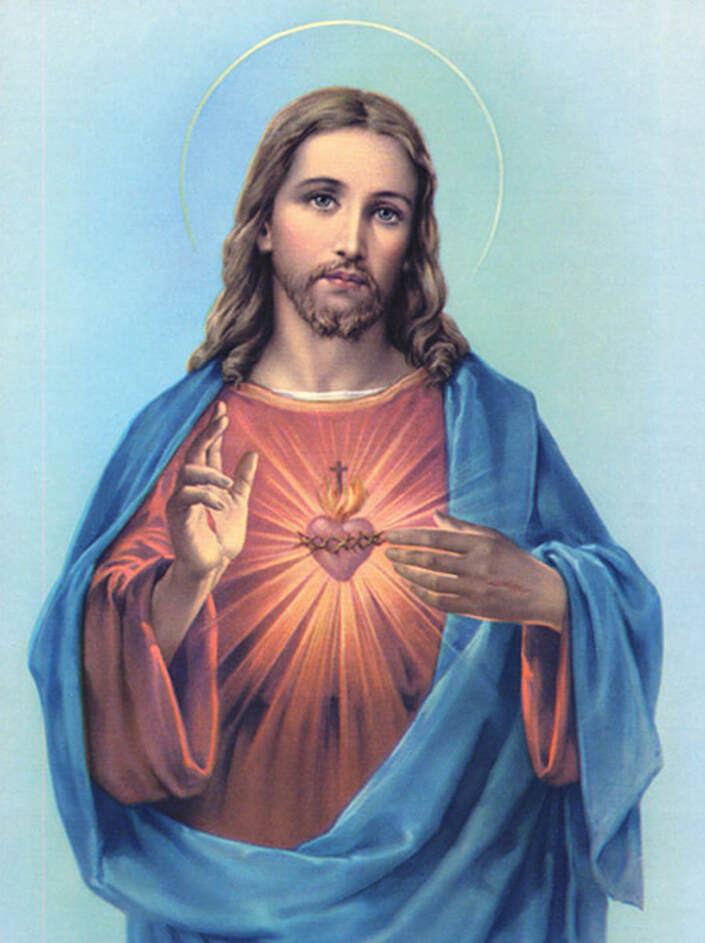
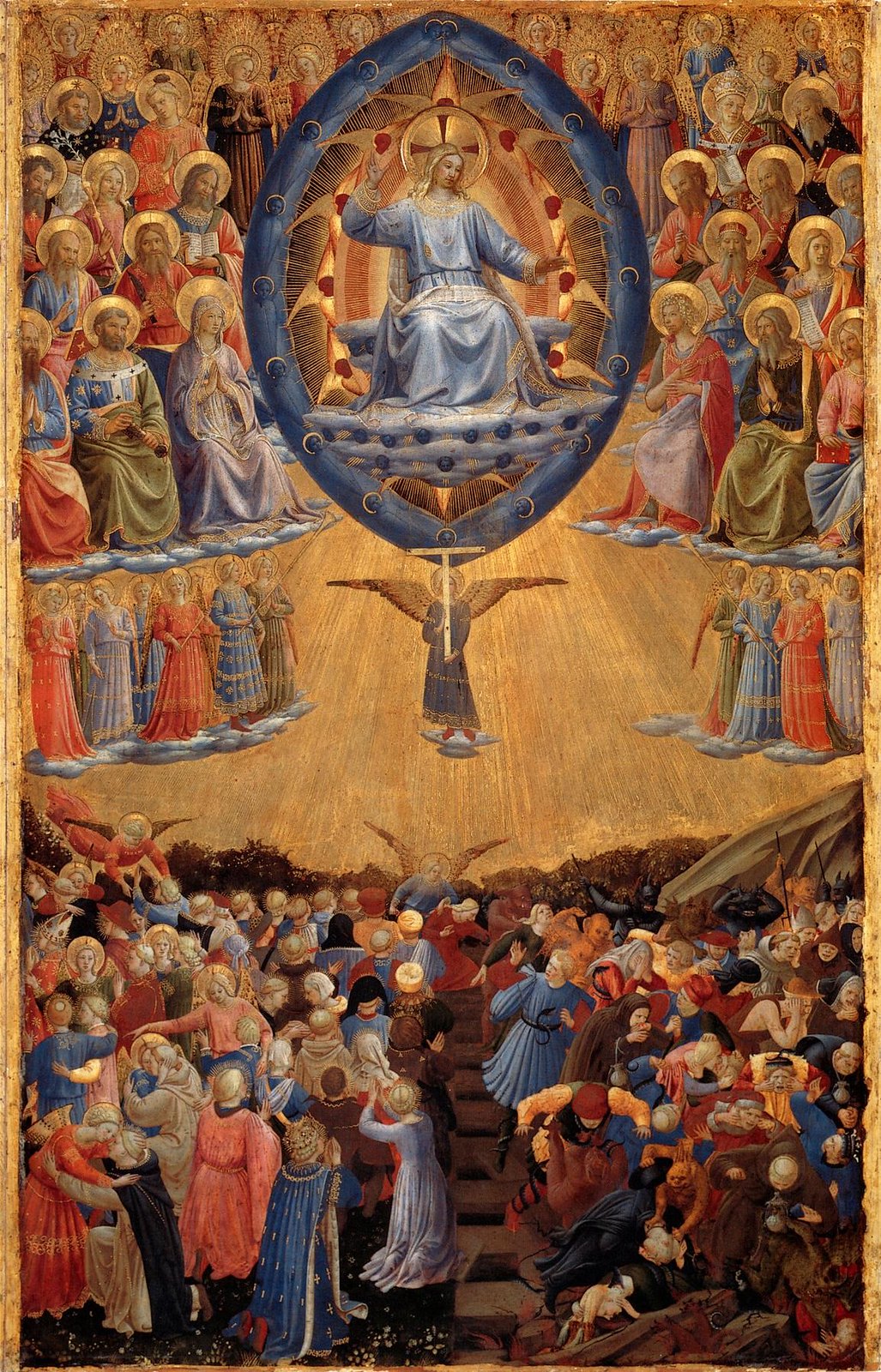
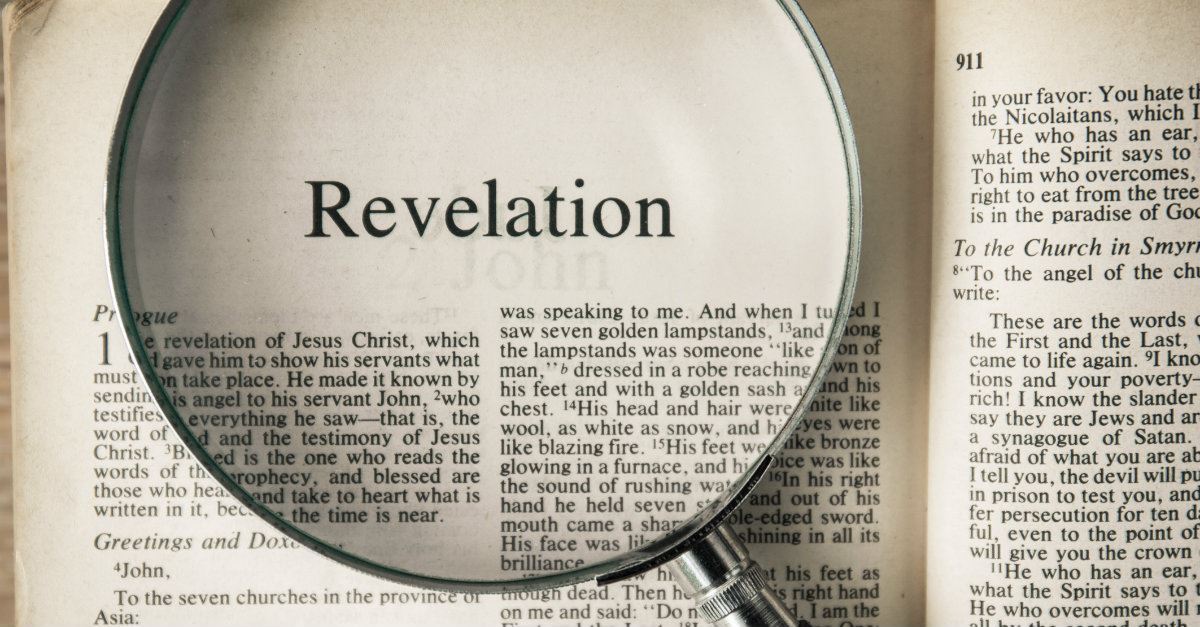
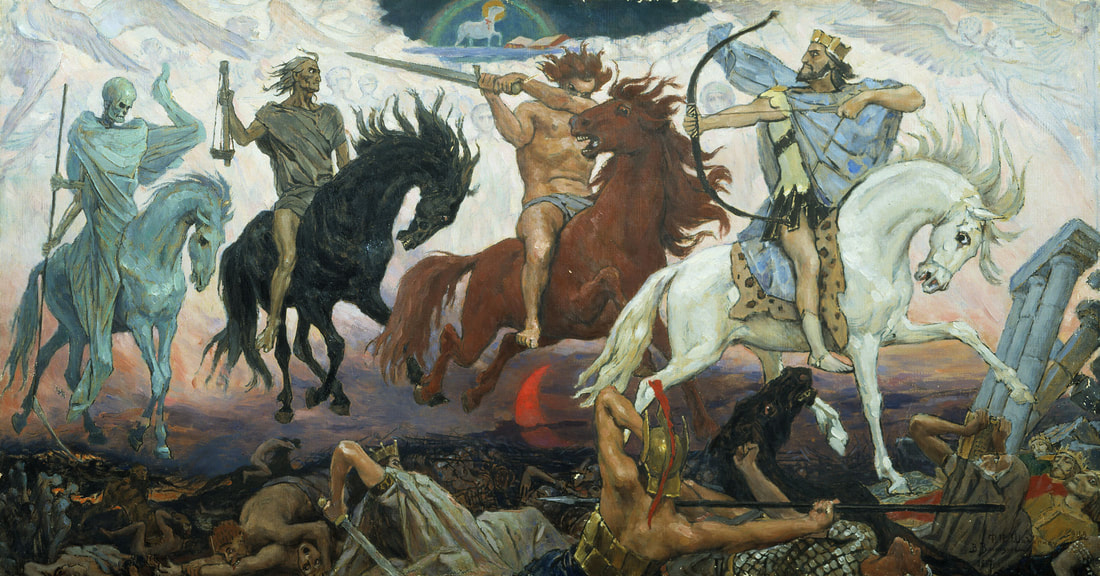
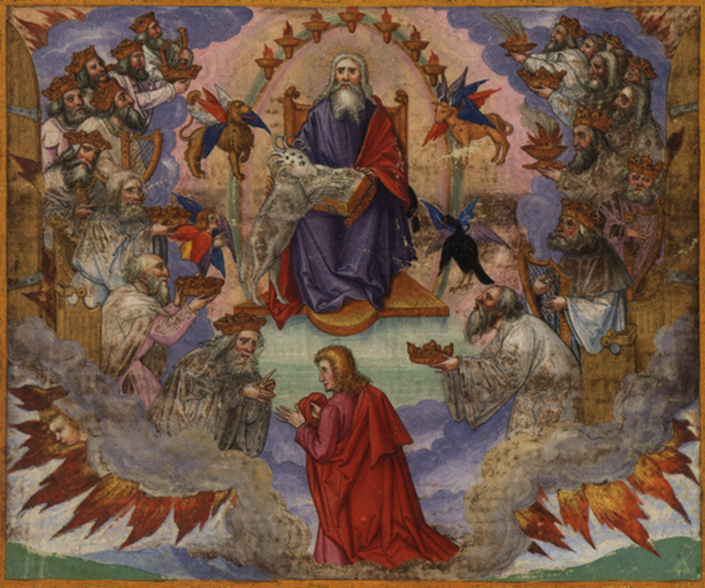
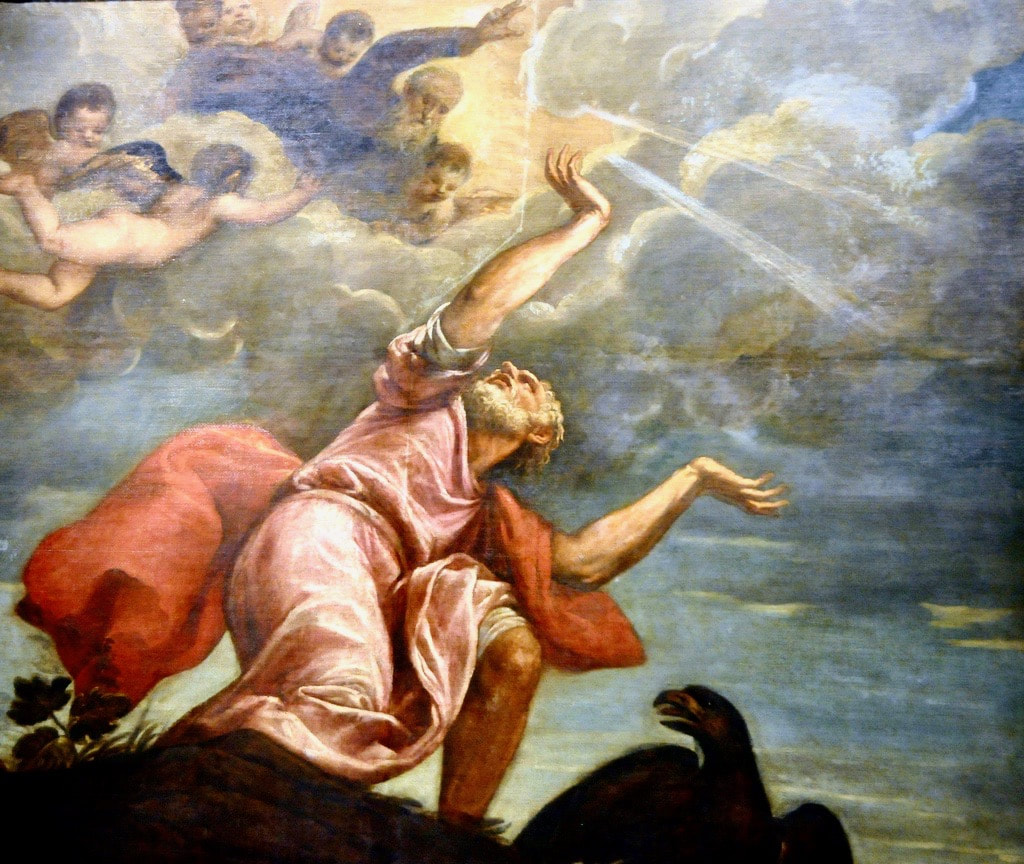
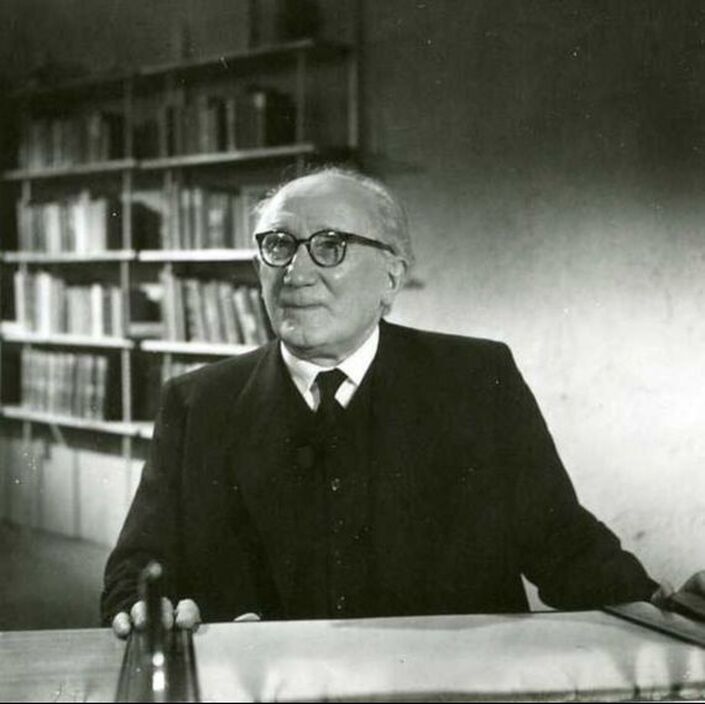
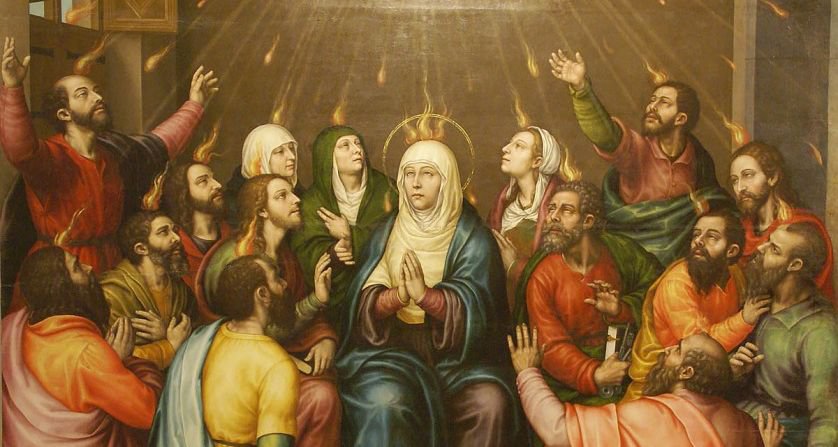
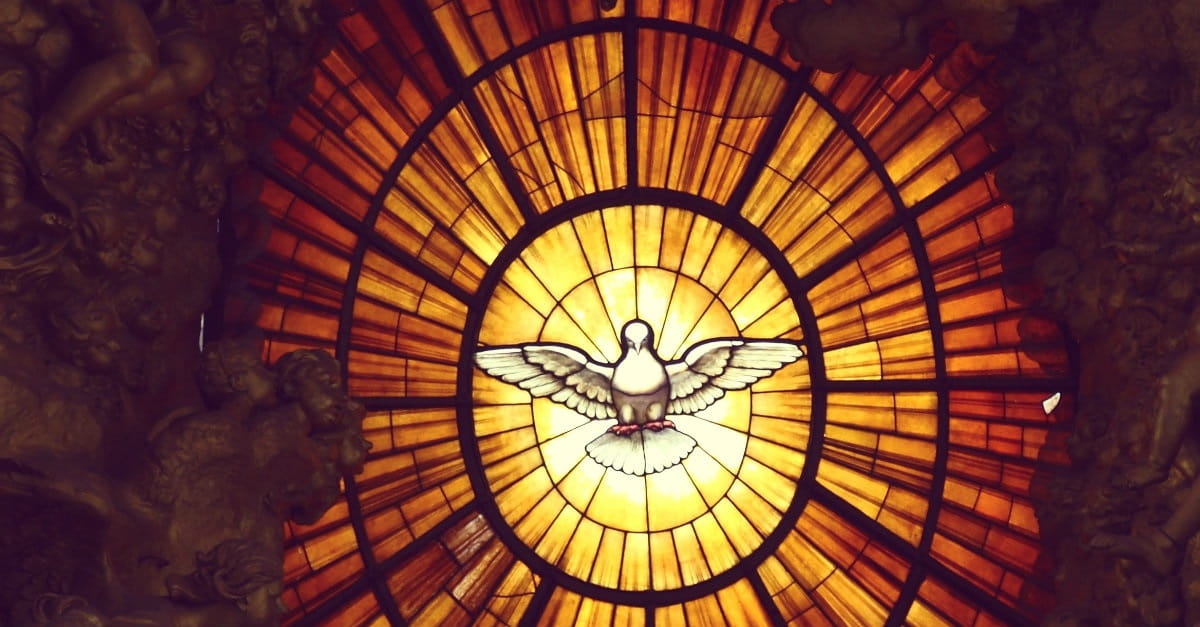
 RSS Feed
RSS Feed